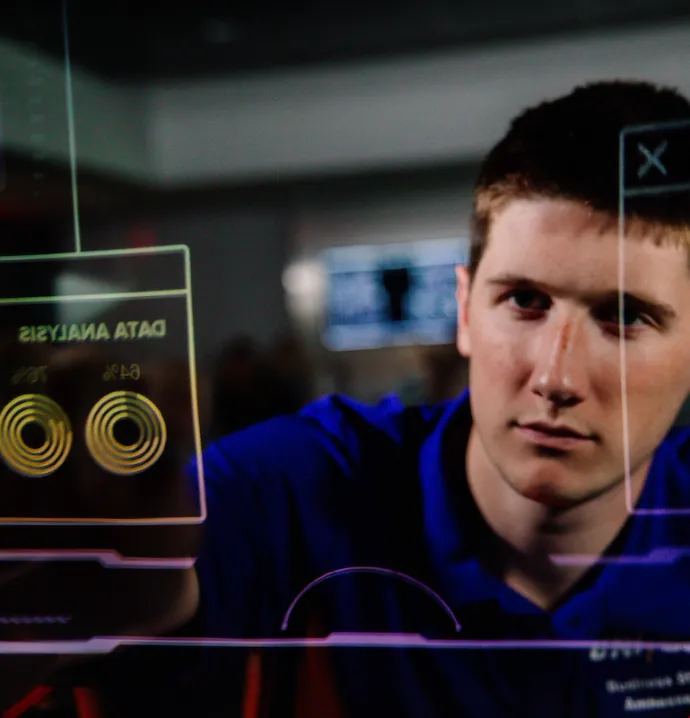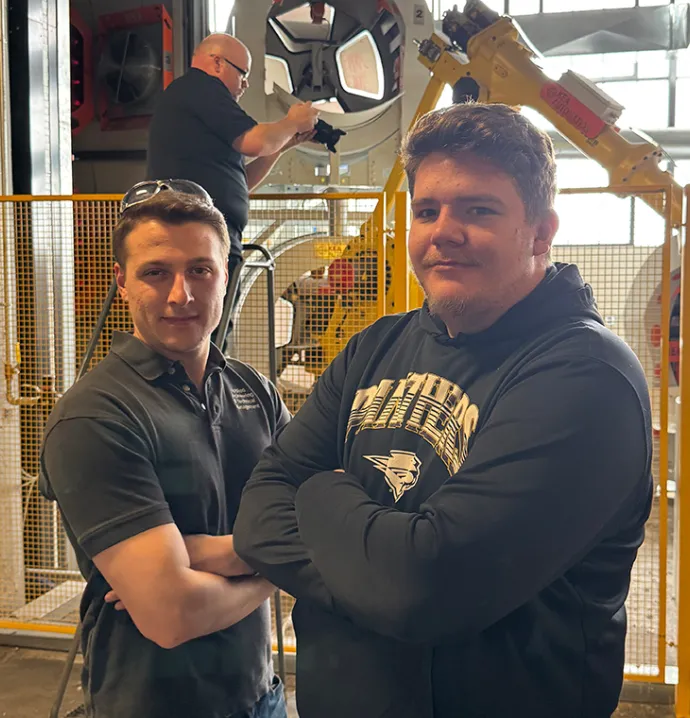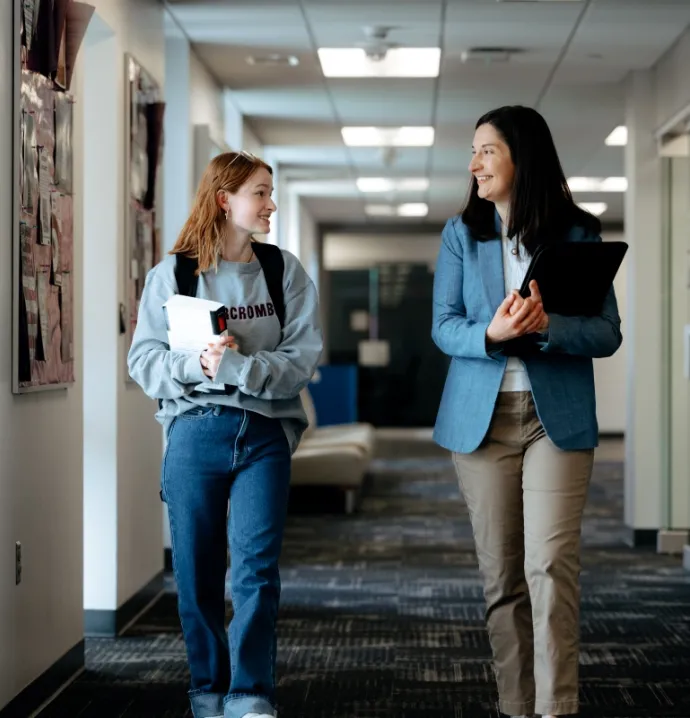UNI biology major finds opportunity in remote research
UNI biology major finds opportunity in remote research
More than 100 million adults in the U.S. suffer from hypertension, or, high blood pressure, and in recent years, nearly half a million deaths in the U.S. were directly or indirectly caused by the condition.
Abby Weekley, a senior biology major at the University of Northern Iowa, is hoping to change that through her work with UNI alum Dr. Bob Good. Weekley and Good are collaborating on a research project to study how much young people between the ages of 18-25 know about hypertension.
Because hypertension starts when a person is young, and slowly builds over time, it’s important to educate young people on what a healthy blood pressure is and how to maintain that through healthy life choices.
“There isn’t much literature out there on this topic, but it’s an important aspect because you can easily prevent a lot of diseases and conditions by educating people – especially young people – about their blood pressure,” Weekley said. “There are a lot of ways to prevent [high blood pressure], through diet, exercise and things like that. Awareness is the first step.”
Weekley first connected with Good – a practicing physician and clinical professor at Carle Illinois College of Medicine in Urbana, Illinois – after the COVID-19 pandemic caused many summer undergraduate research projects at UNI to be cancelled.
Good and his wife Brenda have been longtime sponsors of undergraduate research at UNI, and even established the Dr. Robert & Brenda Good Undergraduate Research Fellowship in Biology, where students receive a stipend to support them in summer or academic year research projects with a faculty mentor.
After conferring with Theresa Spradling, head of the UNI Department of Biology, Good invited Weekley to join his hypertension research project – where he has taken on a role as mentor to Weekley, who is working remotely.
“When I was at UNI, I had so many great professors and mentors who gave me the time and space to learn and experiment, and it was those experiences that have helped me so much throughout my career today,” Good said. “That’s why it’s always been a goal of mine to give back, and help current students have those same experiences. It’s especially great to see that in action and to be a part of it.”
As part of her research with Good, Weekley has designed a survey to gather information from participants on their knowledge of blood pressure and the effects of hypertension. The survey was sent to participants in late June. After she gets the results back, she will begin analyzing the data, before formally presenting her findings.
With plans to attend medical school, and potentially to pursue a career in cardiology, Weekley says she appreciates the opportunity to research in a field she’s passionate about.
“This experience has been so helpful for me,” she said. “This is my first time doing formal research, and as a pre-med [student], it’s huge to have this opportunity. I’m learning so much every day, and I’ve really enjoyed being able to connect and build some really great relationships through this. Dr. Good has been a great mentor.”
Good, in turn, says he’s happy to have Weekley on his team.
“I have high expectations, and Abby has been just excellent,” he said. “She’s doing graduate level research at the undergraduate level and is really excelling. She has a great base of knowledge to add to the work.”
Weekley’s research project with Good is just one aspect of a larger network of UNI students who participate in undergraduate research each year.
According to Spradling, 40% of UNI biology majors had an individualized instruction experience – either an independent study project or formal research experience – during the 2019-2020 school year.
Spradling says that opportunities like these are an invaluable part of the learning experience for students, and an important piece of the department’s mission.
“There is so much learning that happens beyond the classroom," Spradling said. "By being involved in research, our students become intimately familiar with the scientific literature in a whole different way. Throughout these research opportunities, our faculty mentors are there to support the students, but really, the students become leaders in their own right; they collect data on their own, and learn the care and attention that it takes to produce quality work. It's also an opportunity for students to publish their data and contribute to the field of science. Being able to do that as an undergraduate is a very unique opportunity, and it opens a lot of doors for our students.”




